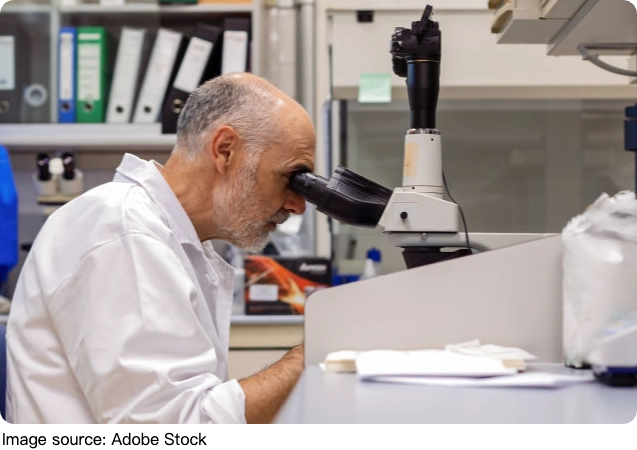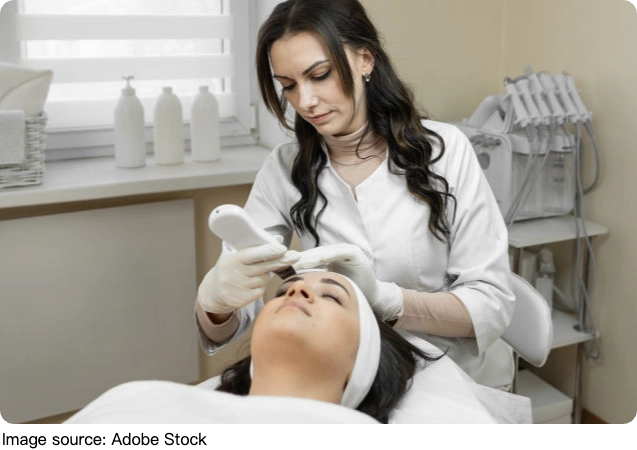Hair Loss and Hormones?

Hair loss affects millions worldwide, often causing significant emotional distress.
While genetics play a crucial role, hormones especially androgens are central to the development and progression of many hair loss types.
The Hormonal Basis of Hair Loss: Androgens at the Forefront
Androgenic alopecia (AGA), commonly known as male or female pattern baldness, is the most prevalent form of hair loss. It arises from the action of androgen hormones, particularly dihydrotestosterone (DHT), on hair follicles. DHT binds to androgen receptors in susceptible follicles, triggering premature aging and miniaturization, which leads to thinner, shorter hairs and eventual follicle dormancy.
Dr. Jon Edelson, highlights a novel perspective: "Our research suggests that the primary problem in androgenic alopecia is not just stimulation or suppression of hair follicles but a defect in the stem cell biology that causes these follicles to 'turn off.' Our new drug ET-02 aims to correct this stem cell dysfunction, potentially reversing hair loss rather than merely stimulating growth."
Current Treatments: Minoxidil and Finasteride
Two main pharmacological agents dominate hair loss treatment:
Minoxidil: Originally developed as a blood pressure medication, minoxidil dilates blood vessels, enhancing oxygen and nutrient delivery to hair follicles. It strengthens hair roots and reduces shedding. However, its effectiveness varies due to individual differences in the enzyme sulfotransferase, which activates minoxidil in hair follicles. This variability explains why some patients respond well while others see minimal improvement.
Finasteride: This drug inhibits 5-alpha-reductase, the enzyme converting testosterone to DHT, thereby reducing DHT levels and slowing follicle miniaturization. Finasteride is more suited for long-term prevention but may carry side effects that limit its use.
Genetics and Personalized Medicine: The Future of Hair Loss Treatment
Genetic factors influence not only susceptibility to androgenic alopecia but also treatment response. Dr. Gustavo Torres, scientific director, explains, "Genetic variations affect androgen sensitivity and drug metabolism, which explains why some patients do not respond to standard therapies. Advances in pharmacogenetics are paving the way for personalized interventions tailored to an individual’s genetic profile."
Emerging research into gene editing and stem cell biology promises future therapies that address the root causes of hair loss rather than just symptoms.
Innovations on the Horizon: Targeting Stem Cell Dysfunction
The recent Phase 1 clinical trial of ET-02 demonstrated unprecedented hair regrowth within five weeks, surpassing minoxidil's results without safety concerns. Unlike traditional treatments focusing on stimulating hair follicles, ET-02 targets the restoration of hair follicle stem cell function, potentially offering a long-term solution.
Dr. Edelson notes, "By correcting the underlying stem cell defect, we hope not only to treat existing hair loss but also to prevent progression."

Holistic Approach: Hormonal Testing and Lifestyle
Given the hormonal underpinnings, evaluating systemic hormone levels including testosterone, DHT, thyroid hormones, and others—is critical in managing hair loss. Lifestyle factors such as stress, nutrition, and scalp health also influence outcomes and should be addressed alongside medical treatments.
Hair loss is a multi-factorial condition with hormones playing a central role. Advances in understanding stem cell biology, genetics, and hormone interactions are transforming treatment paradigms. Patients benefit most from personalized, evidence-based approaches combining current therapies with emerging innovations.
-
 Goiter Warnings Revealed!Neck Feeling Odd Or Tight? Doctors Are Urging Attention To This Hidden Thyroid Sign!
Goiter Warnings Revealed!Neck Feeling Odd Or Tight? Doctors Are Urging Attention To This Hidden Thyroid Sign! -
 OCD & Brain: Must Know!OCD And The Brain?! What If It's Not Just Habits—But A Neural Storm You Can't See?!
OCD & Brain: Must Know!OCD And The Brain?! What If It's Not Just Habits—But A Neural Storm You Can't See?! -
 Insulin Warning Sign!The Role Of Insulin Resistance In Type 2 Diabetes?! Hidden Truths You Can't Ignore Anymore!
Insulin Warning Sign!The Role Of Insulin Resistance In Type 2 Diabetes?! Hidden Truths You Can't Ignore Anymore!